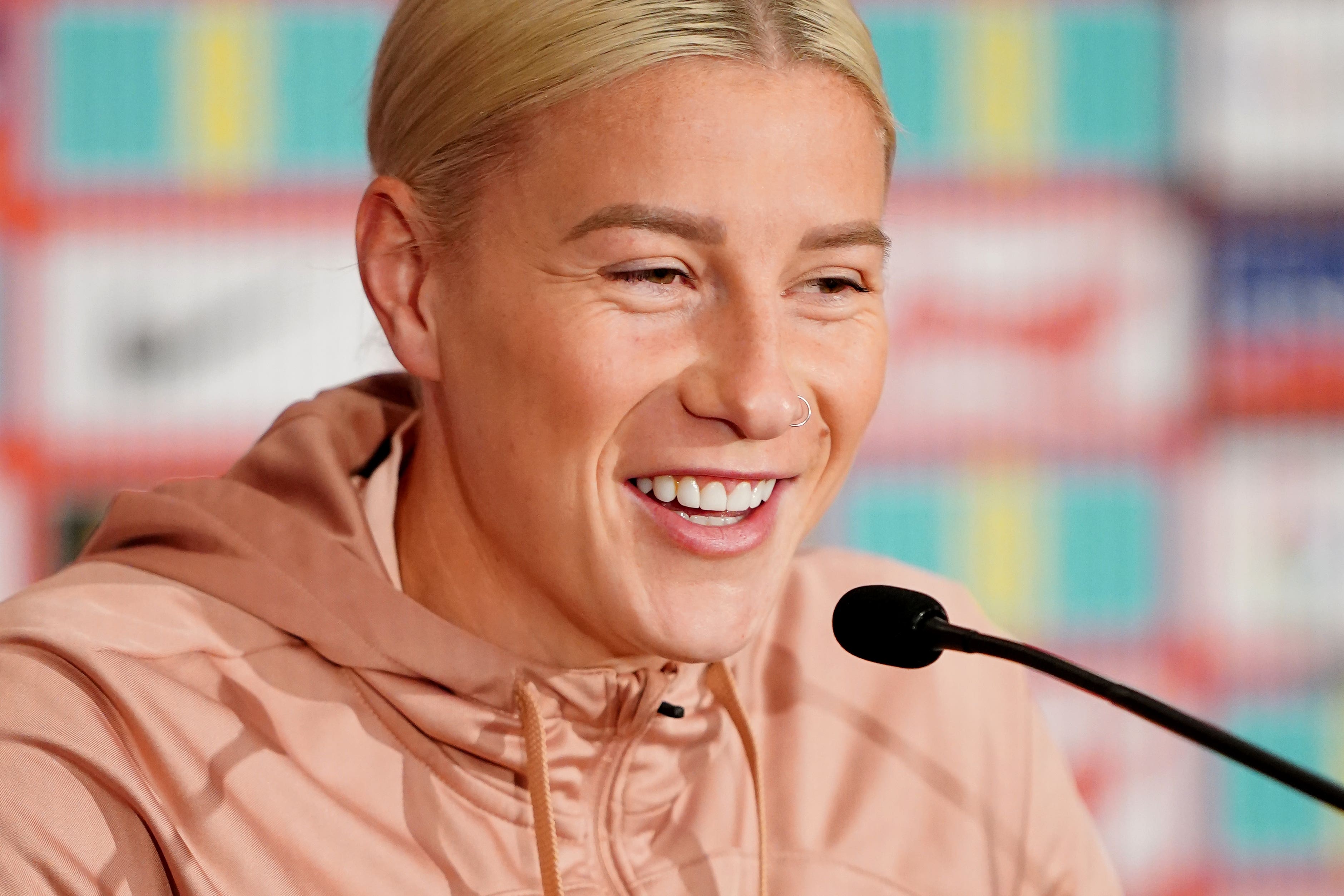Lioness urges people to wear SPF and not take a risk with their skin
Bethany England’s grandfather died from skin cancer, and she said people should be proactive about protecting themselves from the sun.

England and Tottenham star Bethany England is urging people to wear sunscreen and not take a risk with their health and skin.
The 29-year-old, whose grandfather Barry Fletcher died from skin cancer, questioned whether his death could have been prevented, saying he was “old school” and may not have taken every precaution.
She said people should be proactive about protecting themselves from the Sun.
The Lioness told the PA news agency she applies SPF on a daily basis, and during a football match may even top up at half time, especially if she has been sweating.
It's about being proactive and not reactive, and don't take the risk with your health and your skin...
The Sun emits ultraviolet radiation in the form of UVA and UVB (also UVC which does not reach the Earth’s surface).
These rays can cause melanoma and non-melanoma skin cancers, but sunscreen can prevent most of these rays from reaching the skin and reduce the risk of skin cancer.
Ms England said: “The reality is that cancer is very much alive and can affect more people than we probably realise.
“And for me it’s about being proactive and not reactive, and don’t take the risk with your health and your skin if there’s protection out there available, that’s an easy fix.”
Speaking about her granddad, who had also had bowel cancer, she added: “I would say he was very old school in that he would probably not use it at all, which is probably one of the saddest things about it, is that it maybe could have been prevented.
“He had his dogs and he would go out walking twice a day, every single day, in all weathers and obviously in the Sun he’d be in a T-shirt.
“So he was probably getting a lot of access to sunlight without having the protection that he required.”
Sunscreen needs to be used together with shade, clothes and a hat to make sure you are getting the best protection from the Sun’s UV rays
Ms England was speaking ahead of Skin Cancer Awareness month, and as network operator O2 has partnered with The British Skin Foundation and Green People to create a limited-edition smartphone accessory with a built-in SPF30 sunscreen to remind holidaymakers to top-up whilst soaking up the Sun.
A survey of 2,000 Britons, conducted by Censuswide for O2, found that nearly one in five (18%) people would go abroad to a warm climate without packing protection, thinking they would be “fine” without it.
This feeling was higher amongst men (24%) than women (12%).
Other reasons for people neglecting to wear sunscreen include forgetting it, or some even doubting whether it works (5%).
Some 17% of those visiting the pool or beach admitted to having previously forgotten sunscreen compared to just 8% forgetting their mobile phone.
Among those who do apply SPF, nearly one in 10 (8%) said they only do so when they feel they might be burning, despite 76% admitting that getting burnt has a negative effect on their holiday.
Although 90% of those surveyed said it is important to protect their skin, only two in five (43%) always wear sunscreen while on holiday, with 65% stating they prioritise packing their mobile phone over bringing sunscreen (57%).
Maxine Lenza, health information manager at Cancer Research UK, said: “When buying sunscreen make sure you choose one with at least SPF 30 and four or five stars. Use it generously, applying thickly and evenly.
“The price or brand doesn’t matter. It’s about picking a sunscreen that works for you – if you like the feel and smell and it’s affordable, you’re more likely to use it.
“But when it comes to Sun safety, sunscreen is only part of the puzzle.
“Sunscreen needs to be used together with shade, clothes and a hat to make sure you are getting the best protection from the Sun’s UV rays.
“And remember, Sun safety isn’t just for holidays abroad – the Sun can be strong enough to cause skin damage in the UK between mid-March and mid-October.”
Lisa Bickerstaffe, head of communications at The British Skin Foundation, said: “At the BSF we know that UV rays damage the skin and can potentially cause health problems in the future, so we’re proud to work together with O2 on this initiative by providing expert advice on sun safety to educate the public.”
Christian Hindennach, chief commercial officer at Virgin Media O2, added: “The findings from this study are truly concerning.
“That’s why we’ve partnered with The British Skin Foundation and Green People during Skin Cancer Awareness Month to create a smartphone accessory as a helpful prompt to ‘top up’ whilst on holiday.”
The limited-edition free mobile phone accessory will be available at selected O2 stores across the country from May 15.
Ms England said: “I think it will probably prompt more people as a reminder to be able to apply it.”
According to Cancer Research UK, there are around 16,700 new melanoma skin cancer cases in the UK every year – some 46 every day.
Melanoma skin cancer is the fifth most common cancer in the UK, accounting for 4% of all new cancer cases.
Melanoma skin cancer incidence rates are projected to rise by 9% in the UK between 2023-2025 and 2038-2040.
Bookmark popover
Removed from bookmarks